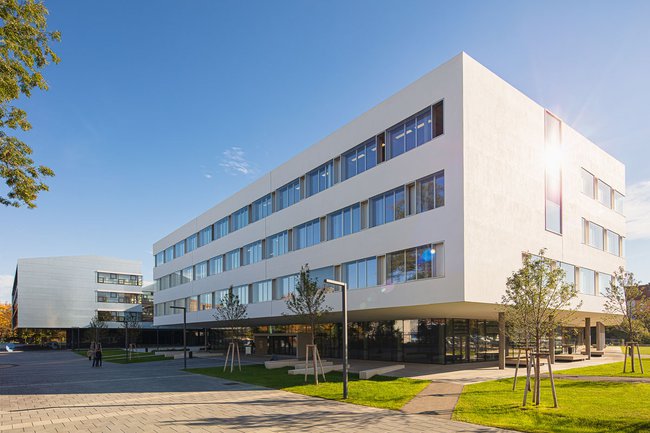New Study Places from Fall 2025
Federal Ministry Grants 89 Additional Study Places and 2 New Study Programmes to UAS

The Federal Ministry of Education, Science and Research (BMBWF) has allocated a total of 800 additional first-semester study places for the academic year 2025/26, and the St. Pölten University of Applied Sciences is to receive 89 of them. This will allow the institution to expand existing study programmes in Social Sciences and offer two new ones in future as well: From the autumn of 2025, the UAS will launch a bachelor degree programme in Rail Vehicle Technology and a European joint master in Citizen-Centered Digital Healthcare Technology Transformation (JEUDITH).
Focus on STEM and Understaffed Professions
In the tender for new study places, the focus of the BMBWF was on two core areas: 351 places were granted for innovative study offers in the STEM disciplines, while another 449 places were created to commemorate the 30th anniversary of the university of applied sciences sector in Austria. These study places were allocated to study programmes that educate future experts for professions that verifiably lack academically trained specialists.
As of the academic year 2025/26, the St. Pölten UAS will have an additional 89 study places:
- The bachelor degree programme Social Work will be expanded by 35 places.
- The new dual bachelor degree programme Social Pedagogy has been allocated 10 government-funded study places.
- A new bachelor degree programme in Rail Vehicle Technology is to start with 20 government-funded places (subject to accreditation).
- The new European joint master JEUDITH – Joint European Master for Citizen-Centered Digital Healthcare Technology Transformation is to start with 24 government-funded places (subject to accreditation).
High Quality and Relevance of Study Programmes
“We are very much looking forward to offering even more study places in the forward-looking fields of social sciences as well as digitalisation and sustainability in future. With a total of 89 additional first-semester places, we have secured the highest number of study places awarded by the Ministry: More than 10 percent of the 800 places have been allocated to the St. Pölten UAS – which goes to show the high quality and relevance of our programmes”, say UAS CEOs Johann Haag and Hannes Raffaseder. “We would like to express our sincere thanks to the Academic Directors and their entire teams who have been doing an excellent job in teaching, research, and the organisation of study operations for years.”
Central Driver of Innovation in the Region
“With its wide spectrum of study programmes and excellent research work, the St. Pölten UAS is one of the central drivers of innovation in the region and an important educational institution in our town. With the promise of further study places funded by the federal government, the UAS can, in future, counteract the lack of skilled experts in the social sciences and provide new impulses in the steadily growing field of digitalisation”, adds Mayor Matthias Stadler.
“Catalyst for Lower Austria as a Place of Innovation”
The universities of applied sciences in Lower Austria will receive a total of 159 government-funded study places – with the majority of them going to the St. Pölten UAS.
The generous expansion granted by the Federal Ministry is “a catalyst for the education of specialists and for Lower Austria as a place of innovation”, emphasises Governor Johanna Mikl-Leitner. “It is highly satisfactory that the efforts and investments in the Lower Austrian university of applied sciences sector over the past three decades have resulted in such a high standard of education, research, and society.”
Deputy Governor Stephan Pernkopf, who is responsible for the science sector, praises the clear vision of the future: “It is extremely pleasing that numerous UAS-level study programmes with a focus on digitalisation and transformation have profited from the expansion. We need experts to ensure the safe, responsible, and effective use of digital technologies. An education at our Austrian universities of applied sciences provides an excellent preparation because this is where the future is already in the making.”